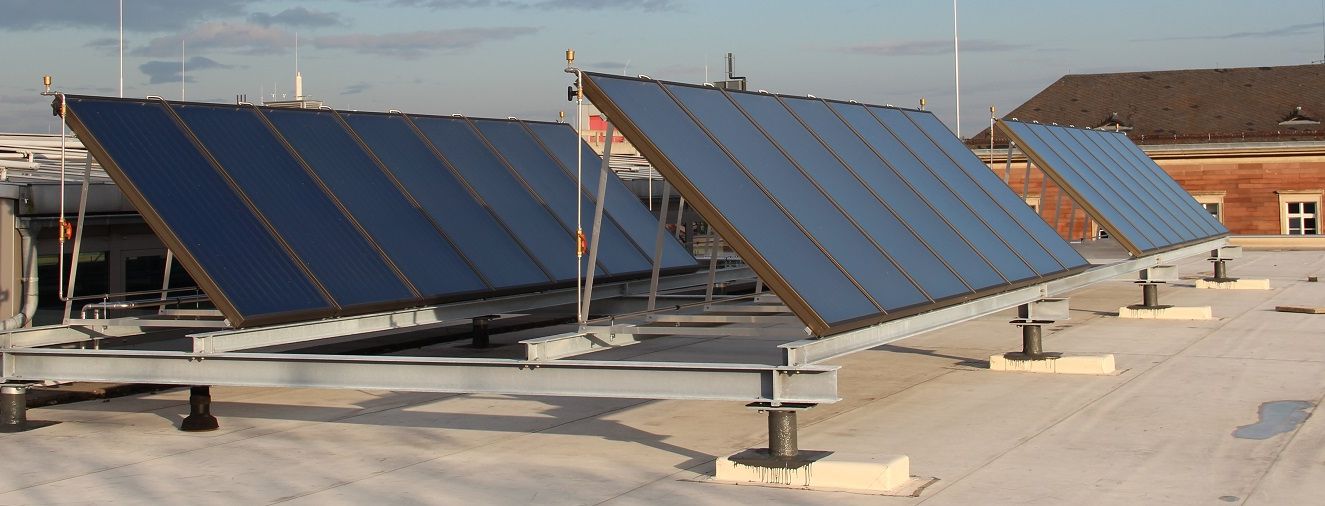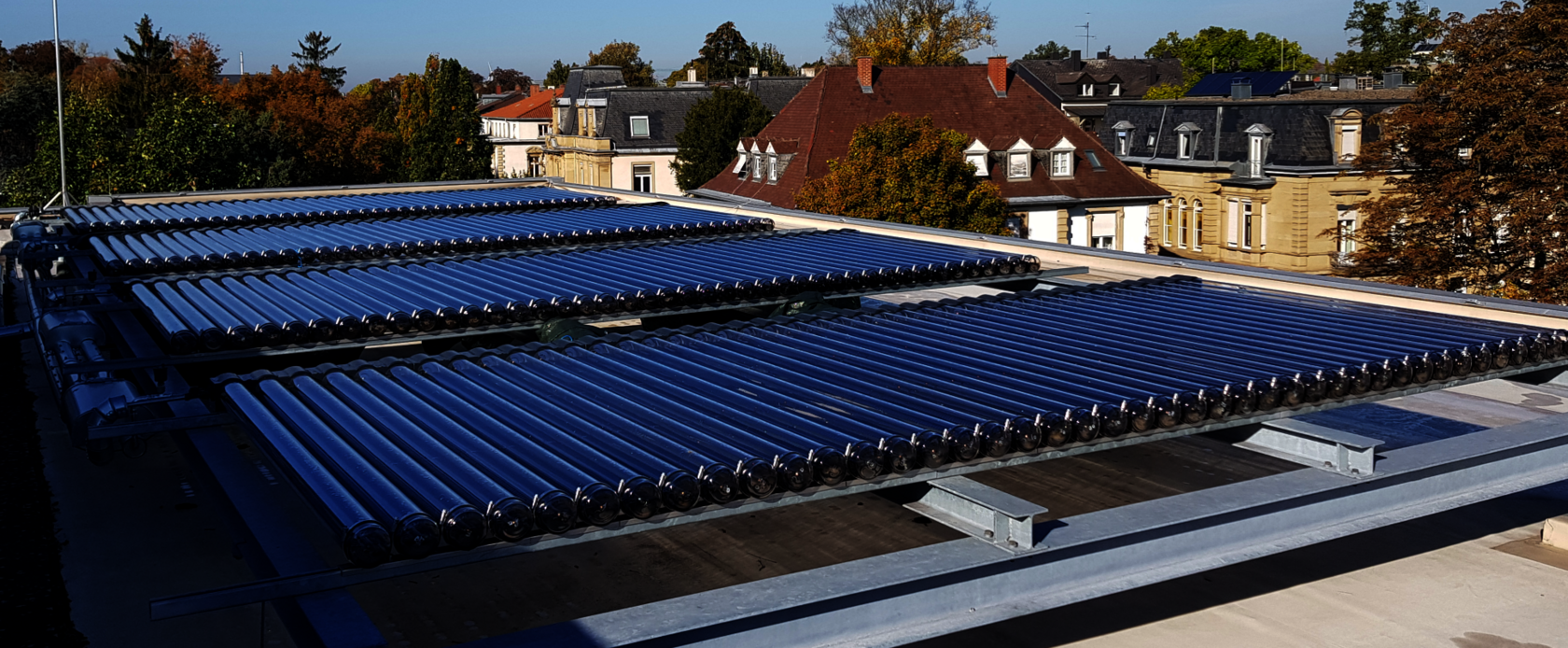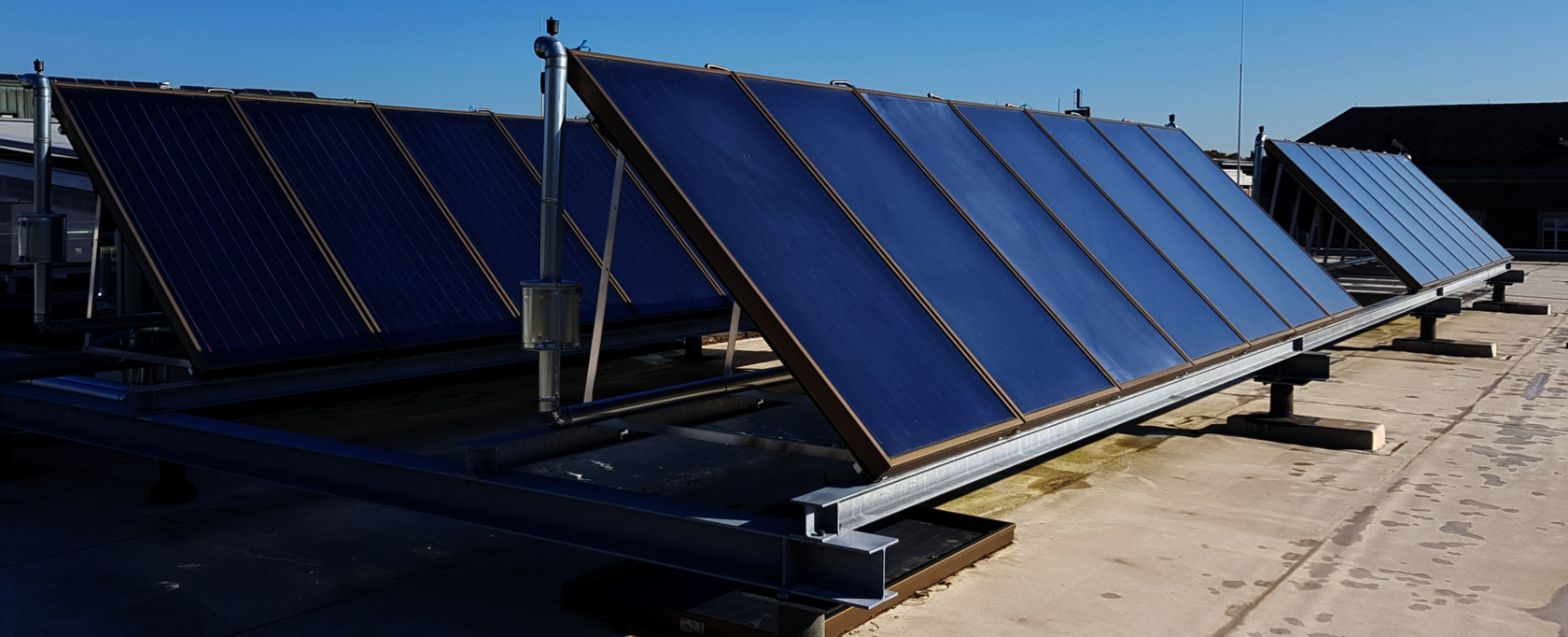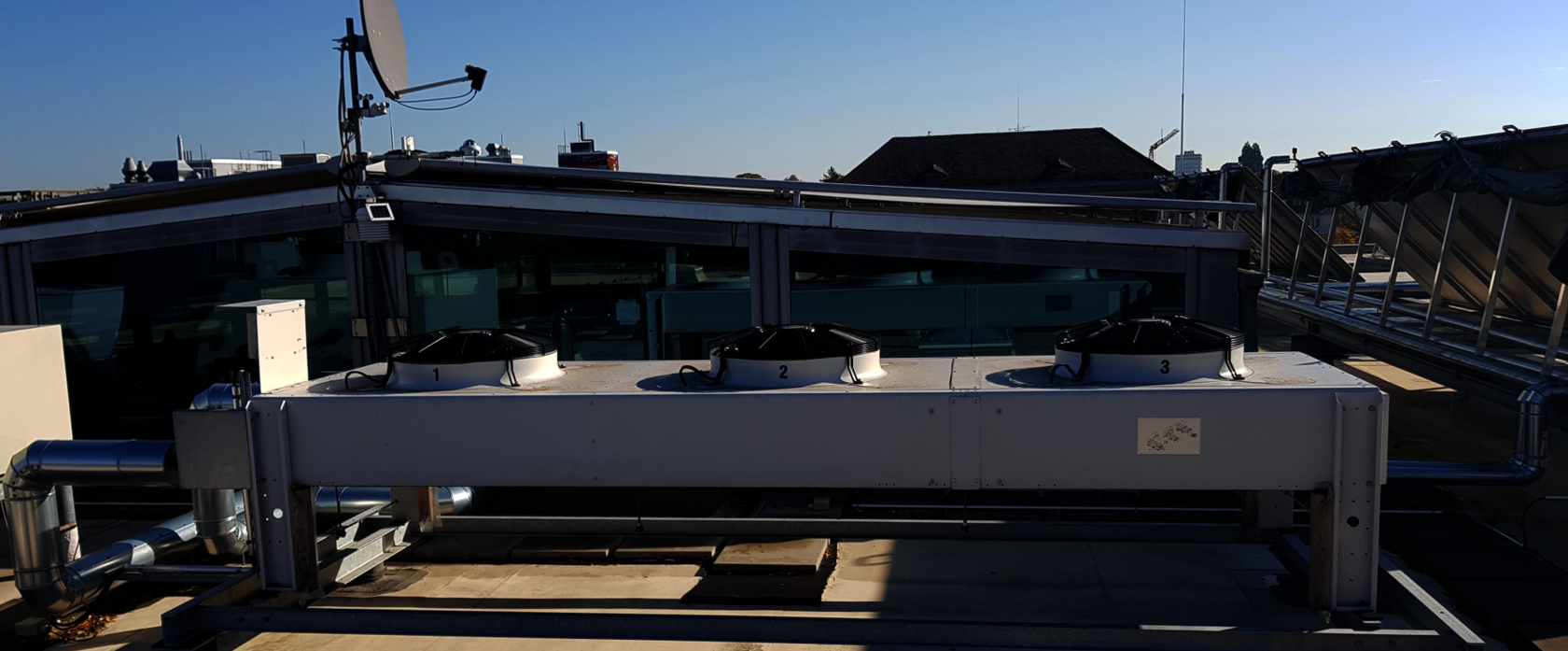
The Solar Air Conditioning Lab
The Solar Air Conditioning Lab at the Faculty W
The Solar Air Conditioning Lab at Karlsruhe University of Applied Sciences is led by Prof. Dr. Marco Braun.
In order to transition the energy supply of the future toward a sustainable model, the integration of renewable energy sources—such as solar and wind power—is essential. Within the Faculty of Management Science and Engineering, the Solar Air Conditioning Lab is employed for the modeling, simulation, and optimization of energy systems in both research and teaching.


